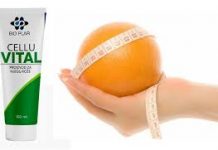General
Opinion on the importance of food in the pre- and post-training period for physical activity enthusiasts.
Specifications
Highlight the importance of nutrition for bodybuilding; Review the relationship between pre- and post-workout meal consumption and improved performance.
3. Literature review 3.1 importance of physical activity
Regular exercise combined with healthy eating is increasingly associated with improved quality of life because it promotes physiological and psychological benefits for individuals (SILVA et al., 2012).

Physical activity, when performed regularly, has several positive health benefits such as reducing the risk of death, heart disease, diabetes, colon cancer and high blood pressure, improving weight control, reducing body fat and increasing muscle mass (ZAMAI; COSTA, 2008).
Exercise promotes greater energy expenditure and caloric needs and this performance will be better with a healthy and balanced content of all nutrients such as carbohydrates, fats, proteins, minerals and vitamins (HERNANDEZ; NAHAS, 2009; SILVA et al., 2012 ).
Bodybuilding
There are different types of training and strength training (weightlifting), some of the terms used most often recently, whose main objectives are: improving athletic performance, physical fitness and gaining muscle mass (hypertrophy) (ADAM et al., 2013 ).
Strength training is a type of activity characterized as strength training, which is defined as an exercise against resistance that usually uses high intensity muscle contraction and induces mainly anaerobic muscle hypertrophy (MOREIRA, 2010).
 Aerobic exercise corresponds to exercise that requires large amounts of oxygen to produce energy. In contrast, it already uses an anaerobic energy source independent of oxygen (VIANA et al., 2007).
Aerobic exercise corresponds to exercise that requires large amounts of oxygen to produce energy. In contrast, it already uses an anaerobic energy source independent of oxygen (VIANA et al., 2007).
3.2 the importance of nutrition- Nutrition can be described as the act of self-feeding through a set of processes from food intake to assimilation of your cells, including social, economic, cultural and psychological events that can affect your electrical power supply.
- In this way, the concept of nutrition can be analyzed according to its complexity, emphasizing the importance of appropriate application not only for high-performance athletes, but as for any individual in order to improve overall health (DANIEL; NEIVA, 2009)
Nowadays, most athletes and active people have supplementation as their primary means of achieving results when the goal is to increase muscle mass, mass and background strength. Consequently, the importance of nutritional education in this aspect (MOREIRA, 2010).
Nutrition monitoring is essential for athletes to consume a balanced diet and meet their nutritional needs according to the type of exercise they practice, considering duration, frequency, intensity and your goal is to gain body mass or lose weight. (NOGUEIRA; Souza; Brito, 2013).
3 nutrition and pre-workout
According to the Brazilian Society of Sports Medicine (SBME), the goals of carbohydrate consumption before training are: increasing glucose stores, avoiding hunger and low blood sugar during exercise. It is advisable that the food consumed before exercise should be the life of the exerciser, free of flavorings and atypical foods and allow gastric emptying (HERNANDEZ et al., 2009).
The composition of the pre-workout meal depends on several factors such as time of onset, duration, intensity, physical activity, sport, and also on individual factors such as stomach, tolerance time to meal execution, and food preference ( HERNANDEZ et al., 2009).
Regarding carbohydrate intake prior to activity, one factor that cannot be overlooked is the time before the activity. There is evidence that carbohydrate intake, low glycemic, must be 1 to 4 hours before exercise to be beneficial to performance, regardless of whether muscle glycogen is affected (shoe stocks; FAYH; OLIVEIRA, 2006).
Thus, it is possible to establish a proper nutritional orientation positively influencing the athlete’s performance and intake, whereas insufficient ductus can induce physiological manifestations associated with nutrient deficiencies such as hypoglycemia and fatigue (ALMEIDA; PAM2001, 2017).
- Carbohydrate recommendations for athletes are 6-10 g/kg body weight per day or 60-70% of daily energy intake.
- However, individual requirements will depend on energy expenditure, sport and environmental conditions (PANZA et al., 2007).
- Performing particularly vigorous exercise causes a greater release of heat from the body to produce sweat, which is one of the main physiological mechanisms of thermoregulation.
Therefore, the athlete needs to take in fluids before, during and after exercise to compensate for the water loss caused by excessive sweating. To replace water losses during the recovery period, the athlete should consume at least 450 to 675 ml of fluid per 0.5 kg of body weight lost during exercise (PANZA et al., 2007).



